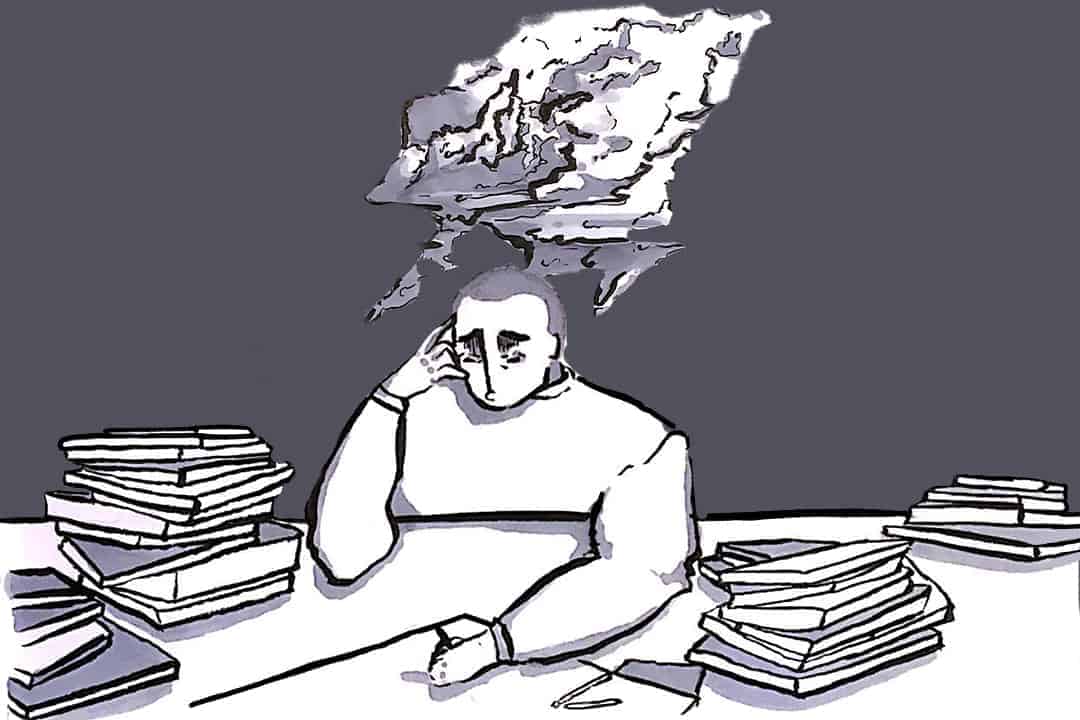As U of T students approach the tail end of the fall semester, a common concern on many people’s minds is the workload that accompanies year-end finals and projects. We’ve all been there.
Many students use words like “overwhelmed,” “stressed,” or “tired” to describe how they are feeling during this time. These terms are usually signs that individuals using them may be on the path to experiencing burnout or feeling its effects already. So what exactly does it mean to experience burnout?
Burnout is a state of exhaustion caused by prolonged and excessive stress. It can lead to feelings of emotional, physical, and mental exhaustion. Other signs of burnout include feeling alienated from tasks and responsibilities and feeling a sense of reduced accomplishment.
I recall talking to my friends and peers, especially in our early years of university, about our upcoming tasks and responsibilities. Everyone would try to emphasize the stress and workload that they had — almost as if we were trying to show off that we were extremely busy, and try to one-up each other on how overwhelmed we were.
Interactions like this are unfortunately quite common among students. Anyone can experience burnout, and it can be related to aspects of school, work, or personal life. In a society characterized by hustle culture and productivity culture, it can be hard to break away from thought processes and habits that may contribute to the path to burnout.
Because of this, it is important to recognize signs of burnout, as it can lead to impacts on our health and well-being.
When you’re going through a particularly busy period in school, work, or life in general, it can be easy to put your head down and try to power through. However, when you’re feeling signs of burnout, it’s worthwhile to take the time to reflect and take action to prevent or manage your symptoms.
While you’re reflecting on your current state, evaluate whether you have noticed a change in your sleep or eating habits, your energy and motivation toward work, or if you have been experiencing negative feelings toward yourself or your responsibilities.
When actively trying to prevent or manage burnout, first and foremost, do not be afraid to reach out for support, whether that means speaking to a trusted friend or family member or seeking out a healthcare professional. Having the space to talk to someone about how you’re feeling and to be validated can go a long way in helping you manage feelings of stress, worry, or negative thoughts.
On top of that, proper sleep, eating well, and exercise are essential for well-being and physical health, and can be helpful in reducing feelings of stress or exhaustion.
When your school or work responsibilities are taking a toll, try to reframe how you look at your work and prioritize your tasks. Try to find aspects of what you are studying or working on that make you excited. Reframing your thoughts to think about the positive aspects can help you find motivation.
This can also involve setting boundaries between your school and work responsibilities and your personal life. Try to take breaks from technology and from responding to non-urgent messages. Setting aside time to explore things that make you happy or help you relax is worth it, and it can have a big impact on managing symptoms of burnout.
If you think you are experiencing some signs of burnout, try to practise self-care in whatever way that suits you, whether by taking short breaks throughout your day, prioritizing your sleep, or trying some mindfulness activities. It’s always wise and brave to value your health and prioritize your well-being.


